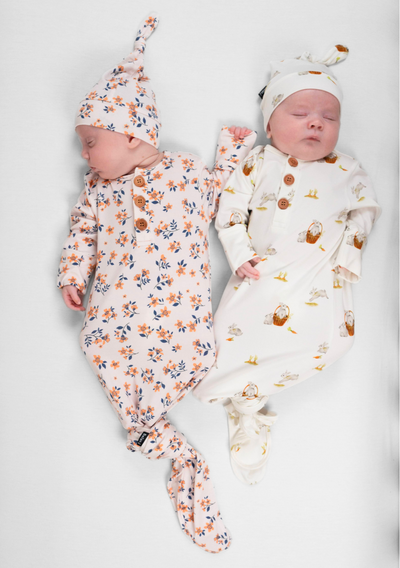Babies are born with an insatiable curiosity and a remarkable capacity for learning. As they grow and develop, their needs and interests change. The right toys can play a pivotal role in promoting cognitive, motor, and emotional development. Here’s a breakdown of what toys are ideal for each stage in baby’s growth and development.
Stage 1: Newborn to 3 Months
During this stage, babies are still adjusting to the world. Their senses are rapidly developing, and they are primarily focused on building a bond with their caregivers. Toys should be simple, soft, and soothing.
Black and White Contrast Cards: High-contrast cards with bold black and white patterns can help stimulate a baby's developing vision. These are great for tummy time activities.
Soft Plush Toys: Simple plush animals or stuffed toys can provide comfort and security for a newborn. Look for ones with different textures for tactile exploration.
Stage 2: 3 to 6 Months
At this stage, babies are becoming more alert and interactive. They start to reach for and grasp objects and enjoy exploring with their mouths.
Rattles and Grasping Toys: Toys that are easy to hold and make gentle sounds when shaken are perfect for developing fine motor skills and stimulating sensory exploration.
Teething Toys: As babies begin teething, toys designed for this purpose can provide relief. Look for ones that can be chilled to soothe sore gums.
Stage 3: 6 to 9 Months
Around this age, babies are gaining more control over their movements and are likely to start crawling or rolling over.
Activity Gyms: These are equipped with hanging toys and mirrors, providing both physical activity and visual stimulation.
Stacking Rings or Blocks: These help babies refine their hand-eye coordination and are great for building problem-solving skills.
Stage 4: 9 to 12 Months
As babies approach their first birthday, they become increasingly curious and may even take their first steps.
Push Toys: Encourage their newfound mobility with push toys that can help them take those first steps.
Shape Sorters: These toys are excellent for developing problem-solving skills and hand-eye coordination.
Stage 5: 12 to 18 Months
At this point, babies are transitioning into toddlers and are rapidly developing language and social skills.
Interactive Books: Books with textures, flaps, and sound effects can promote language development and cognitive skills.
Puzzles: Simple puzzles with large pieces can improve problem-solving and fine motor skills.
Stage 6: 18 to 24 Months
As toddlers become more independent, they thrive on open-ended toys that encourage creativity and imagination.
Building Blocks: Blocks in various shapes and sizes can be used to build structures, fostering spatial awareness and problem-solving.
Art Supplies: Toddler-friendly art supplies like washable crayons, finger paints, and large paper can inspire creativity and fine motor skills.
The right toys for each stage of a baby's development are crucial for their growth and learning. Babies are constantly evolving, and their toys should evolve with them. Keep in mind that safety is paramount, and it's essential to choose toys that are age-appropriate, free from small parts that could pose choking hazards, and made from non-toxic materials. By providing your child with toys that match their developmental stage, you're not only ensuring their physical and mental growth but also fostering a love for learning and play that will last a lifetime.



